Case studies
The examples below aim to provide inspiration and to share experiences of different types of climate change adaptation work in Sweden.
Search Results
44
hits for time limit
ErosionFloodingTourismUrban planning
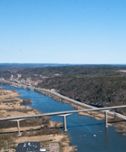
due to high water levels in the sea around Gothenburg, which
limits run-off from Göta River. The sea level is the single most significant factor affecting the flood risk and in unfavourable conditions can affect the level in the river all the way up to the sluices in Lilla Edet. The high flows in the
ErosionFloodingSnowStorm waterTourismUrban planning
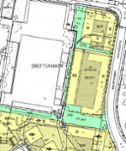
In Sweden, climate change is expected to lead to larger amounts of storm water run-off to be handled in the urban environment. In many cities, a densification is also under way with more buildings and hardened surfaces. At the same
time, the share of green spaces with good infiltration
BiodiversityEcosystem servicesMouldNatural environment
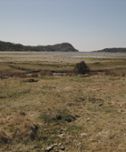
project amounted to SEK 1.2 million. Continued work The County Administrative Board holds courses on the care and management of trees, which should increase insight into how trees can
limit climate impact and at the same
time strengthen biological diversity. Several invasive species are increasing in
AgricultureForestryHealthHeat wavesReindeer husbandrySnowStorm waterTourismUrban planning

forecasts are described in a comprehensible and engaged manner, at the same
time that it provides a tool to use in education.
BiodiversityFloodingForestryMouldNatural environmentReindeer husbandry
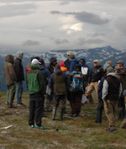
various stakeholders in Vilhelmina Model Forest contribute their own
time and there is no fixed financing. The long list of projects conducted since the beginning has been financed with various funds, such as funding from the rural area programme and other EU funding. Opportunities Vilhelmina Model Forest
ErosionFloodingMouldNatural environmentStorm waterTourism
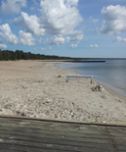
problem that has been noticed in Ystad since the mid-1800s. Erosion is a natural process that takes place all the
time, but due to rising sea levels, the problems will get worse in the future. The coasts outside the city are gradually disappearing and have done so for a very long
time. The erosion
BiodiversityErosionFloodingMouldNatural environmentTourismUrban planning
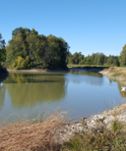
not covered by the precipitation that comes during the vegetation period. In the more water retaining soils, clay soils, there is a water reservoir that the plants use. Lighter soils, sandy soils, have little possibility to store water. By collecting water in the winter
time, surface water or from
HealthHeat wavesHumidityMouldTourismUrban planning
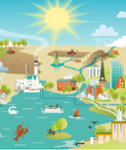
By systematically working with climate adaptation, the changes in the climate of the future will be easier to handle. An action plan for climate adaptation paves the way for the issue to have a greater impact, at the same
time that awareness it increases the risks and vulnerabilities in the
BuildingsErosionFloodingSnowStorm waterTourismUrban planning
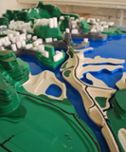
for the first
time in autumn of the same year. The model that exists today is made of plastic and buildings are illustrated as small white houses. All functions critical to society are marked in red and equipped with sensors sensitive to water linked to a computer that senses when the function is
ErosionFloodingTourismUrban planning
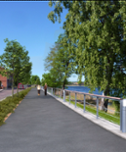 time
time that the municipality began planning a walkway and bicycle path along the river. Since a flood bank would also have to be drawn along the river, the idea was born to have a combined solution. The decision was to build a flood bank of just over one kilometre with a walkway and bicycle path that